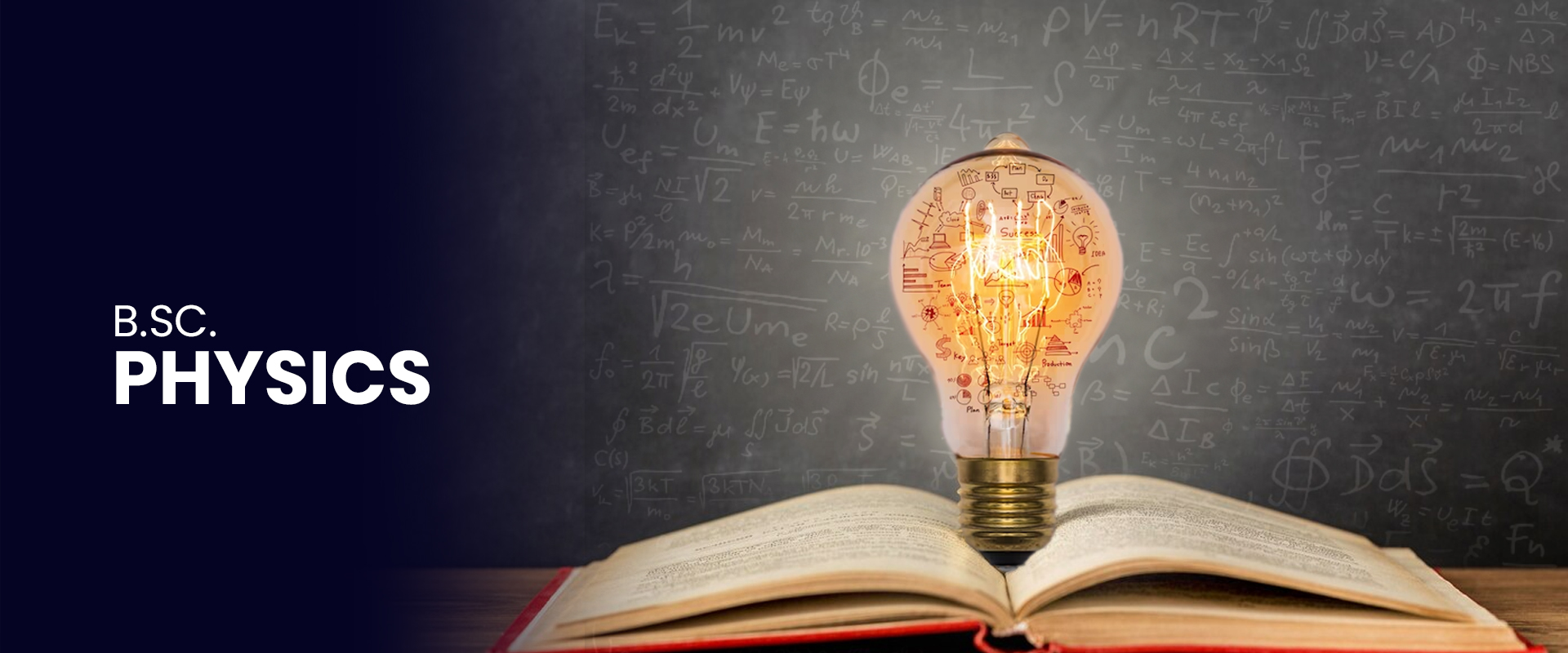Apply Now
About B.Sc. (Physics)
Career Opportunities in B.Sc.(Physics)

Radiologist Assistant
Radiologist assistants are professionals who assist radiologists in patient care, assessing a patient’s reports, managing radiation procedures to ease a patient’s medical experience.

Senior Physicist
A senior physicist is responsible for conducting experiments, overseeing research, solving problems that arise in the lab, developing computer simulations, and publishing research findings.

Radiation Oncologist
Radiation oncologists are responsible for diagnosing a patient, recommending relevant care, and protecting patients from the adverse effects of radiation therapy during the treatment.

Consulting Physicist
A consulting physicist works with diverse clients, utilising their data, knowledge, and analytical skills to help clients find proper and viable solutions within the scope of their industry.
Fee Structure & Eligibility
| Programme | Sem | Year | Mode | Eligibility | Academic Fees Per Year (INR) |
Special Fees (Incl. Library Fee & Examination Fees) Per Year (INR) |
Fees Per Year |
|---|---|---|---|---|---|---|---|
SCHOOL OF SCIENCE (UG) |
|||||||
| B.Sc. in Physics | 6 | 3 | Sem | 10 + 2 with Physics and Mathematics as compulsory subjects and 40 % & 45% aggregate percentage for reserved category and general category respectively | Rs.23,000 /- | Rs. 7,000 /- | Rs. 30,000 /- |
Note:
- Admission Form and Prospectus Rs. 1000/- (One Time).
- Caution Money Rs. 1000/-
- Hostel Fees Rs. 1,10,000/- per annum + 5000 (Deposit Rs 5, 000 at the time of Admission only on refundable basis) Minimum 4 Occupancy
- Transportation Fees as applicable based on Route and Pick Up Point.
- Uniform Cost Rs. 6000/-















